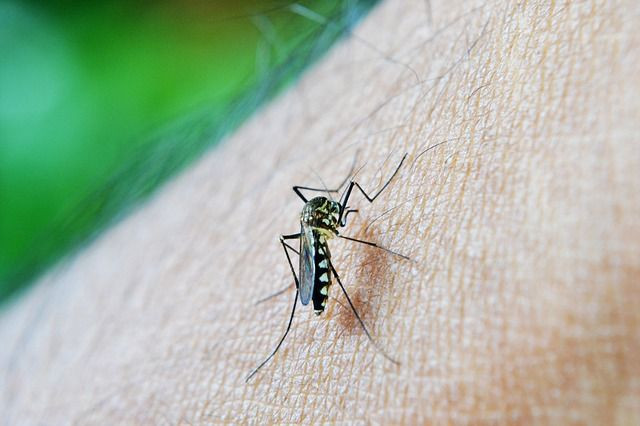Consumer Reports Finds There Are Only 3 Bug Repellent Ingredients That Actually Protect From Bug Bites

Bug spray has always played an integral role in your summer stash, but this year’s Zika virus outbreaks throughout the Caribbean and South America have made the product even more indispensable. Consumer Reports recently released its yearly review of bug sprays and it turns out that there really are only three products that actually work to offer decent protection against these aerial pests.
In order to land a spot on Consumer Reports’ coveted bug spray buying guide, the spray must be effective in warding off mosquitoes for at least seven hours, Business Insider reported. According to the report, “brave testers” bared their arms in mosquito- and tick-filled outdoor labs in order to record how long it took before the bugs crawled and bit over the treated areas.
Despite there being scores of different bug sprays on the market, each with their own personal spin on bug repellent recipes, the report found that only three actually worked: those that were made of either DEET, picaridin, or oil of lemon eucalyptus. However, the report reads that it’s not only important to have these ingredients in a bug spray, you must also have the correct amount:15 to 30 percent for DEET, 20 percent for picaridin, and 30 percent for oil of lemon eucalyptus. The report also compiled a list of their most recommended bug spray brands with Sawyer Picaridin topping the list with a score of 96/100.
The sprays are an important addition to any summer kit because they not only help prevent annoying mosquito bites, but also the spread of certain diseases. While the bugs used in the Consumer Reports lab were purposely bred to be free from disease, in real life we don’t have this luxury. Along with the mosquito- and tick-carried diseases we are already fearful of, such as lyme disease and the West Nile virus, this summer also carries the additional threat of Zika virus.
Zika is a mosquito-carried virus that can cause serious birth defects if contracted by pregnant women. The virus has already spread throughout popular vacation destinations across the Caribbean, such as Puerto Rico. There is no cure or vaccine against the virus, and prevention methods, such as destroying mosquito-nesting areas and using bug repellent, remain our best avenues of protecting ourselves.
Interestingly, bug repellents aren’t the only way to keep mosquitos at bay. A recent study found that Victoria’s Secret’s Bombshell perfume was nearly as good as bug spray that contains DEET at offering protection from mosquito bites. The researchers noted that the perfume’s mosquito-repelling abilities were most likely due to the perfume’s “fruity-floral” fragrance, which “may provide a masking odor resulting in low mosquito attraction rates but over a shorter duration of time.” This was particularly surprising because it has long been held as a popular belief that mosquitos are attracted to fruity floral scents, but the opposite appears to be true.
Despite the surprising results, though, the combination of the perfume’s expensive price and the high concentration needed to get the mosquito-repellent effects still make it a poor choice for a weekend camping trip. In addition to Victoria’s Secret’s perfume, the study also found that Avon’s Skin-So-Soft bath oil also created a “significant reduction” in mosquito attraction as well.



























